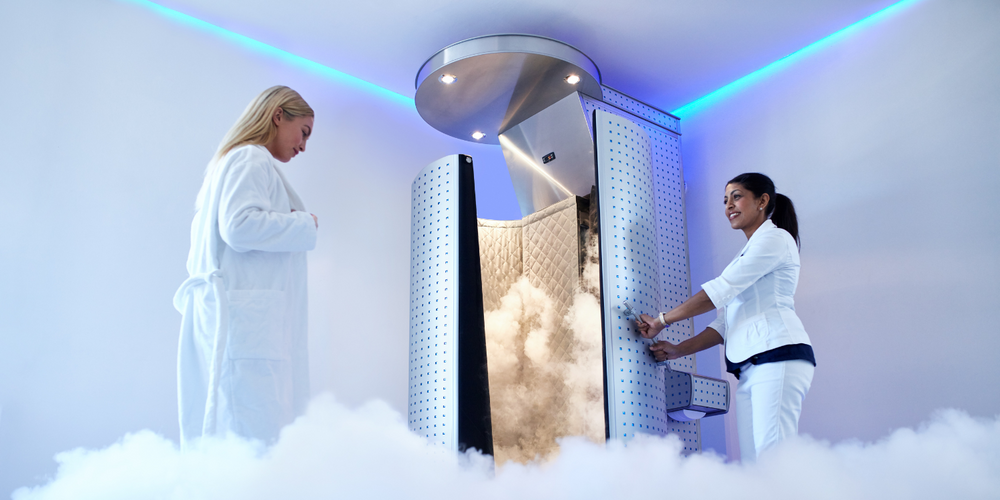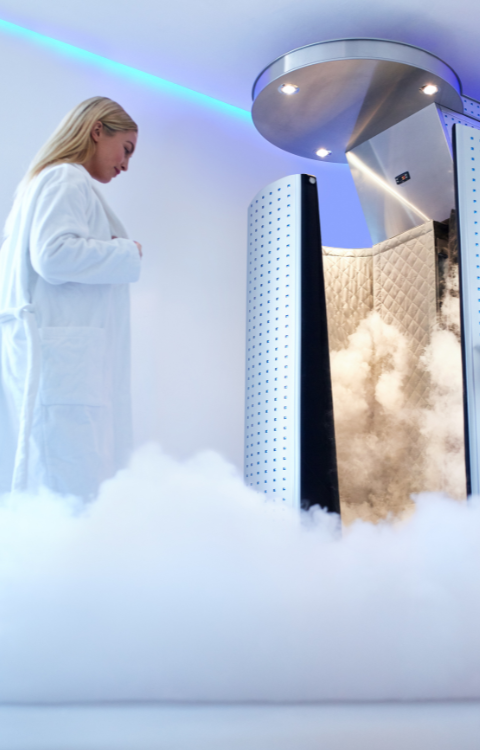Get 20% off 2 or more full priced Baxters or Wellbeing products! Add another full priced item below and a 20% discount will be applied to your overall order at checkout. That's right, 20% OFF your order!
Choose a category


What Is Cryotherapy, What Are The Benefits, And How Does It Work?
10.02.24
In the ever-evolving landscape of wellness, new treatments and techniques emerge to enhance physical and mental well-being. Cryotherapy is one such innovation that has garnered attention for its potential benefits. But what exactly is cryotherapy, what are its benefits, and how does it work? Let's dive into the icy realm of cryotherapy to explore its intricacies and potential advantages.
Understanding Cryotherapy
Cryotherapy, derived from the Greek words "cryo" meaning cold and "therapy" meaning treatment, involves exposing the body to extremely low temperatures for therapeutic purposes. While it might sound like a recent development, the concept of using cold for healing dates back centuries, with practices like ice baths being utilized in various cultures.
How Does Cryotherapy Work?
Cryotherapy typically involves whole-body cryotherapy (WBC) or localized cryotherapy. In WBC, individuals step into a chamber or room where liquid nitrogen or refrigerated cold air is used to lower the temperature to around -90 to -150 degrees Celsius for a short duration, usually 2-4 minutes. During this time, the body's surface temperature drops significantly, triggering various physiological responses.
One primary mechanism behind cryotherapy's effects is vasoconstriction, where blood vessels narrow in response to the cold. This constriction helps reduce inflammation and swelling, making cryotherapy popular among athletes for post-exercise recovery. Additionally, the sudden cold exposure can stimulate the release of endorphins, promoting feelings of relaxation and well-being.
Localised cryotherapy, on the other hand, targets specific areas of the body using cryotherapy devices or tools. This method allows for more precise treatment of injuries, such as muscle strains or joint pain, by applying cold directly to the affected area.
The Benefits of Cryotherapy
Pain Relief: Cryotherapy can alleviate various types of pain, including muscle soreness, joint pain, and chronic conditions like arthritis. The cold temperature helps numb the area and reduce nerve activity, leading to temporary pain relief.
Enhanced Recovery: Athletes and fitness enthusiasts often turn to cryotherapy to accelerate muscle recovery after intense workouts or competitions. By reducing inflammation and muscle damage, cryotherapy may shorten recovery time and allow individuals to train more consistently.
Improved Skin Health: Cryotherapy has gained popularity in the beauty industry for its potential to rejuvenate the skin. The cold exposure can tighten pores, reduce puffiness, and promote collagen production, leading to smoother, more youthful-looking skin.
Mood Enhancement: The release of endorphins during cryotherapy sessions can uplift mood and reduce symptoms of anxiety and depression. Many individuals report feeling energized and mentally refreshed after a session.
Weight Management: While not a substitute for a healthy diet and regular exercise, some proponents suggest that cryotherapy may aid in weight loss by boosting metabolism. The cold exposure may activate brown adipose tissue, which helps burn calories to generate heat.

Celebrities and Athletes Who Embrace Cryotherapy
It's not just wellness enthusiasts who are turning to cryotherapy; several A-list celebrities and professional athletes swear by its benefits. Celebrities like Jennifer Aniston, Demi Moore, and Mandy Moore have been known to incorporate cryotherapy into their wellness routines, praising its ability to rejuvenate both body and mind.
In the sports world, top athletes such as LeBron James, Cristiano Ronaldo, and Floyd Mayweather Jr. have used cryotherapy to support their training regimens and recovery protocols. Many sports teams also invest in cryotherapy chambers for their athletes to help them recover faster and perform at their peak.
Considerations and Safety Precautions
While cryotherapy offers numerous potential benefits, it's essential to approach it with caution and consult with a healthcare professional, especially if you have pre-existing medical conditions. Some individuals may experience adverse reactions to extreme cold, such as frostbite or skin irritation. Moreover, cryotherapy is not recommended for pregnant women, individuals with certain heart conditions, or those with severe cold intolerance.
Cryotherapy represents a fascinating intersection of ancient healing practices and modern technology, offering a range of potential benefits for physical and mental well-being. Whether you're seeking relief from pain, faster recovery from workouts, or a rejuvenating skincare treatment, cryotherapy may hold promise. By understanding how cryotherapy works, its potential advantages, and the endorsement of notable figures, individuals can make informed decisions about incorporating this chilly therapy into their wellness routine. Remember to prioritise safety and consult with a healthcare professional before embarking on a cryotherapy journey.

